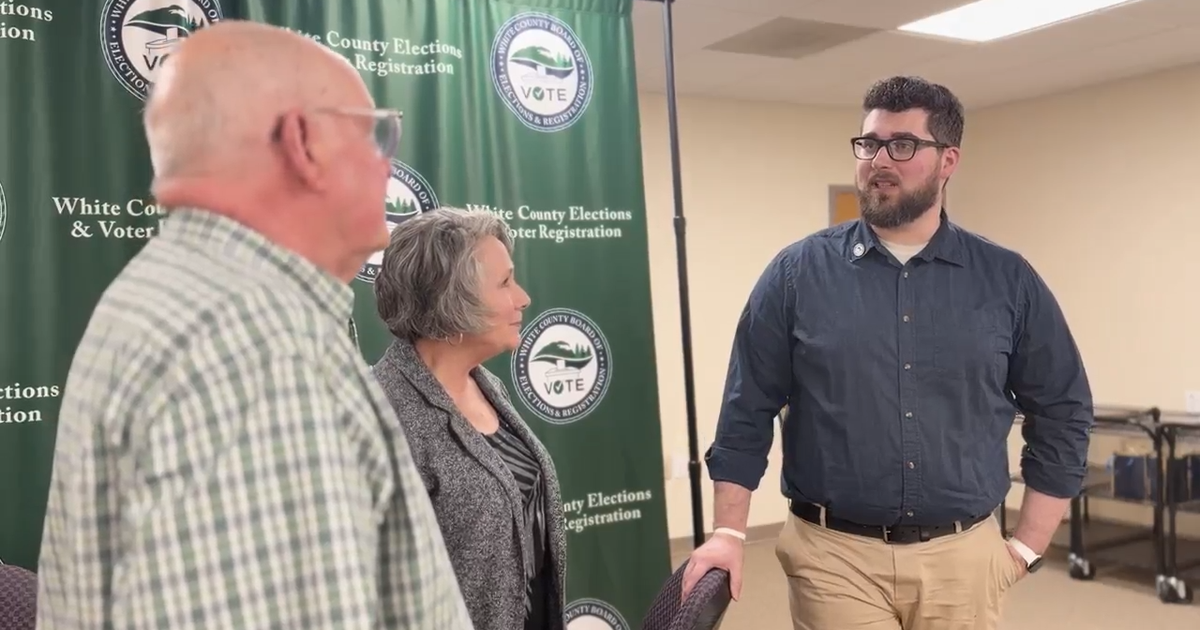Meat processors ready for COVID-19 vaccine, but workers may not be
The COVID-19 vaccine can't come soon enough for U.S. meatpacking plants, an industry plagued by outbreaks, labor shortages and absenteeism due to the deadly virus. Hotbeds for COVID-19 outbreaks, meat and poultry processing facilities face major challenges in getting their hundreds of thousands of employees immunized.
"The resolution to this is a vaccine, and now we have it," Sanderson Farms CEO Joe Sanderson told analysts in a recent earnings call, adding, "It's going to take time. We don't know how many people are going to take it. I think that is a question."
The third-largest poultry processor in the U.S., Sanderson Farms already has nursing stations in place at its 13 processing plants in five states, and is preparing to start vaccinating its more than 18,000 employees against the virus as soon as the vaccine becomes available.
"We've made it known we are very interested in being a vaccination site," Hilary Burroughs, Sanderson Farm's director of marketing, told CBS MoneyWatch, noting that the company has reached out to state health departments. Yet while the company prepares for the vaccine to be available in March or April, another question looms — will its workers agree to be inoculated?
Sanderson, the company's chief executive, told analysts in December that less than 10% of Sanderson Farms' workers got a flu shot last year. He attributes the low inoculation rate to "a lot of misconceptions," a problem Sanderson sought to address by having a doctor educate workers on flu shots via video and the company's custom phone app.
"We do not want that to happen with the COVID vaccine," he told Wall Street analysts. "We hope more than that will take this COVID vaccination."
Concerns over the vaccine aren't confined to the meat industry. Roughly 4 in 10 Americans said they definitely or probably would not get a coronavirus vaccine, according to Pew Research findings released in December. Even some health care workers, who have early access to the vaccine due to their potential exposure to the disease, are resisting, according to a recent survey.
Employee reluctance to get the flu vaccine stems from fears it might be harmful or that it would not work, Sanderson found. The company is now trying to ease such concerns, and is also seeking to make getting vaccinated as simple as possible by making it available at work.
"We're not sitting still," Sanderson Chief Financial Officer Mike Cockrell told CBS MoneyWatch. The company is providing educational material and training videos explaining the importance of the vaccine in protecting the health of workers and their families. Translators are also being brought in to Sanderson Farm plants to help the company communicate with its workforce, who speak more than a dozen languages between them.
Hundreds of worker deaths
Hope for the vaccine comes as the coronavirus continues to surge across the country and as the U.S. reaches another grim milestone in the number of deaths from COVID-19, which have recently topped 400,000. As in other businesses, outbreaks have brought on fears of infection among meat and poultry plant workers, increasing absenteeism in an industry already plagued by high turnover and labor shortages.
From the beginning of the pandemic through mid-January, Sanderson Farms has recorded more than 2,600 cases and six deaths from COVID-19 among its workers. Meanwhile, estimates of the pandemic's broader impact on meat and poultry plant workers vary, as many companies don't publicly release employee deaths and infection rates.
According to the United Food and Commercial Workers union, 131 meatpacking workers have died from the virus, and another 20,900 have been infected or exposed. A tally by the Midwest Center for Investigative Reporting reveals even higher numbers. The independent nonprofit media firm found at least 45,000 reported positive cases tied to meat and poultry processing facilities from at least 482 outbreaks in 38 states, with at least 239 deaths.
The UFCW was among those calling out meat processors and other companies early on in the pandemic for not doing enough to protect front-line workers, with wrongful death complaints and federal penalties following suit. In California, public health officials accused a chicken processing farm in Livingston of not heeding the county's safety guidance and shut it down for a week.
With fewer employees coming to work, slaughter rates at U.S. beef and poultry plants declined in the third quarter of 2020. Tyson Foods CEO Dean Banks said in a recent earnings call that absenteeism had "increased the cost and complexity of our operations" and that the company anticipated that trend to persist in 2021.
Tyson Foods is working with clinical services provider Matrix Medical to ensure its 139,000 U.S. workers "are educated about and have access to the COVID-19 vaccine," the Springdale, Arkansas-based company said last week.
Tyson is also coordinating with state health officials to provide the vaccines at its plants "as soon as possible," a spokesperson emailed. "The timing for each facility depends on when each state makes the vaccine available, but we believe it will be early this year."
Like Sanderson Farms, Tyson is also surveying its workers "for an accurate count of those who want to participate in the vaccination process," and is strongly encouraging employees to take it.



